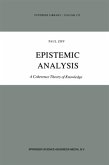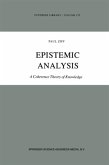Some of these concern properties that emotions can have which can variously enhance or detract from them: profundity, social leverage, narcissism, and sentimentality. Others are attitudes with characteristic emotional loadings, and sometimes motivations, that raise similar questions: cynicism, ambivalence, and sophistication. David Pugmire's general approach is indirect and negative: to analyse emotional foibles, which tend to elude us as we succumb to them, and thereby to point to what soundness in emotion would be. He also elicits connections amongst these aspects of the emotional life. The most pervasive is the dimension of profundity, which opens the discussion: each of the subsequent problems amounts to a way in which emotion can be shallow and slight and so amount to less than it seems; and accordingly, each identifies a form of integrity in the emotions.
What does it mean for emotion to be well-constituted? What distinguishes good feeling from (just) feeling good? Is there such a distinction at all? The answer to these questions becomes clearer if we realize that for an emotion to be all it seems, it must be responsible as well as responsive to what it is about. It may be that good feeling depends on feeling truly if we are to be really moved, moved in the way that avoids the need for constant, fretful replenishment and reinforcement. To be sound, emotions may need to be capable of genuineness, depth, and other kinds of integrity. And that, in turn, may require certain virtues of mind, such as truthfulness, temperateness, and even courage, that are more familiar at the level of action. The governing aim of this book is to demonstrate that there can be problems of a structural kind with the adequacy of emotions and the emotional life.
Hinweis: Dieser Artikel kann nur an eine deutsche Lieferadresse ausgeliefert werden.
What does it mean for emotion to be well-constituted? What distinguishes good feeling from (just) feeling good? Is there such a distinction at all? The answer to these questions becomes clearer if we realize that for an emotion to be all it seems, it must be responsible as well as responsive to what it is about. It may be that good feeling depends on feeling truly if we are to be really moved, moved in the way that avoids the need for constant, fretful replenishment and reinforcement. To be sound, emotions may need to be capable of genuineness, depth, and other kinds of integrity. And that, in turn, may require certain virtues of mind, such as truthfulness, temperateness, and even courage, that are more familiar at the level of action. The governing aim of this book is to demonstrate that there can be problems of a structural kind with the adequacy of emotions and the emotional life.
Hinweis: Dieser Artikel kann nur an eine deutsche Lieferadresse ausgeliefert werden.








